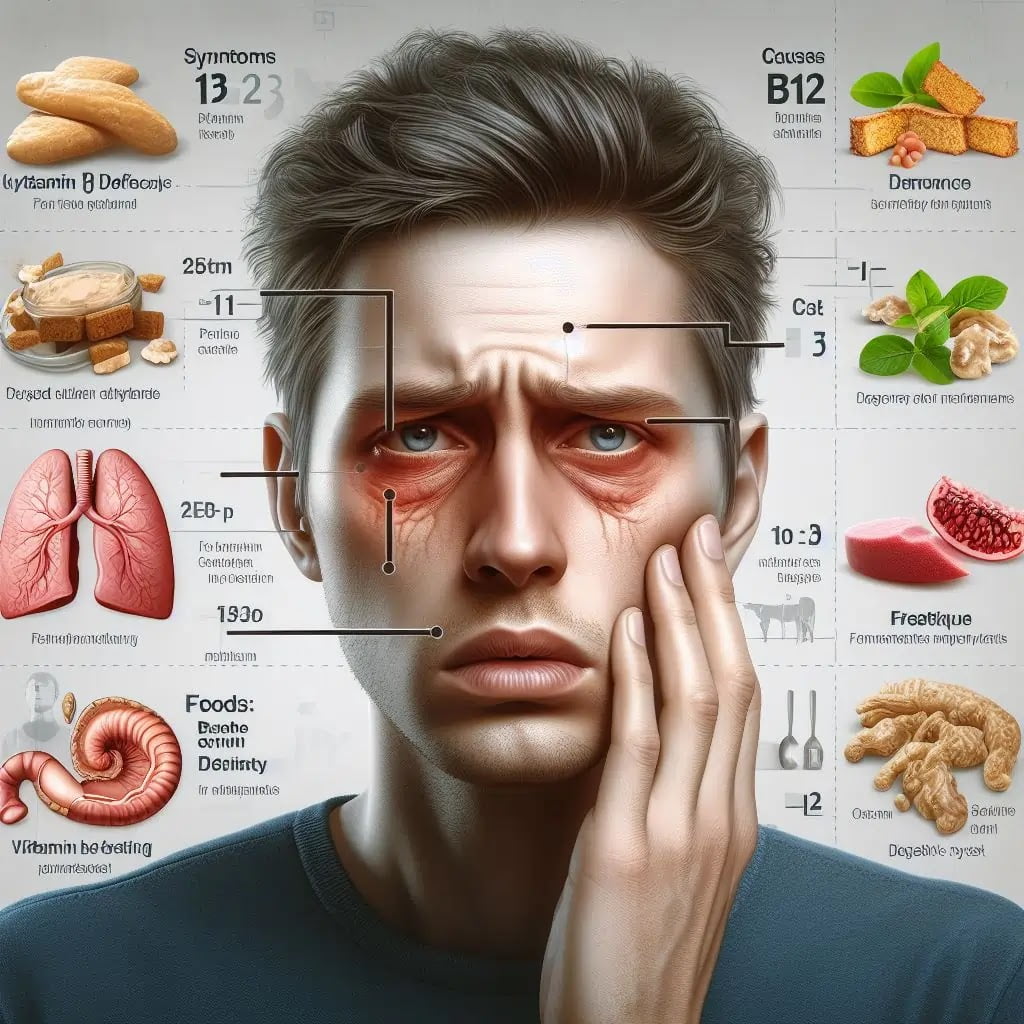Living with diabetes is challenging enough on its own, but did you know that diabetes and mental health are intricately connected? This article aims to uncover the complex relationship between diabetes and mental health conditions, shedding light on the impact they have on one another. Understanding this link is crucial for effectively managing diabetes and achieving overall well-being.
Introduction
Diabetes affects millions of people worldwide, and its prevalence continues to rise. This chronic condition requires careful monitoring, medication, and lifestyle adjustments. While much focus is rightfully placed on physical health factors, mental health often takes a backseat. However, neglecting mental health can have serious consequences for people with diabetes. Recent studies have highlighted an alarming connection between diabetes and mental health disorders, particularly depression, which can significantly hasten mortality in diabetic patients. By exploring the connection between diabetes and mental health, we can unlock the strategies necessary for comprehensive diabetes care.
The Bidirectional Relationship
The relationship between diabetes and mental health operates in a bidirectional manner. On the one hand, diabetes can have significant implications for mental well-being. The constant need for self-management, potential complications, and lifestyle changes can cause emotional distress and impact mental health negatively. On the other hand, mental health conditions such as depression and anxiety can complicate diabetes management by affecting adherence to medication, diet, and exercise routines.
Diabetes-related Distress
Diabetes-related distress encompasses the emotional challenges faced by individuals living with diabetes. The constant pressure to achieve optimal blood sugar control, fear of complications, and lifestyle modifications can lead to distress. Symptoms may include feeling overwhelmed, anxious, guilty, or experiencing burnout. It is crucial to recognize these symptoms and establish coping mechanisms to manage diabetes-related distress effectively.
Depression and Anxiety
Depression and anxiety are prevalent among people with diabetes. Studies have shown that individuals with diabetes are at a higher risk of developing these mental health conditions compared to the general population. Symptoms such as persistent sadness, loss of interest, difficulty concentrating, and excessive worry can significantly impact a person’s quality of life. Depression is found to be twice as likely in individuals with type 2 diabetes compared to those without the condition. A recent study has revealed that the risk of premature death is four times higher in people suffering from both type 2 diabetes and depression. This highlights the need for integrated mental health care within diabetes treatment protocols.
Stress and Diabetes
Stress has a profound effect on blood sugar levels, making it especially important for individuals with diabetes to manage stress effectively. When stressed, the body releases hormones that increase blood glucose levels, potentially causing erratic blood sugar fluctuations. Incorporating stress management techniques such as exercise, mindfulness, and engaging in hobbies can positively impact both mental and physical health outcomes.
Eating Disorders and Diabetes
People with diabetes are at a higher risk of developing eating disorders, such as binge eating disorder, bulimia nervosa, and anorexia nervosa. The pressure to achieve a certain body image combined with the unique dietary restrictions of diabetes can contribute to disordered eating behaviors. Recognizing the signs and seeking help from healthcare professionals is essential for addressing this issue and promoting a healthy relationship with food.
Diabulimia: A Dangerous Intersection
Diabulimia is a condition that primarily affects individuals with type 1 diabetes. It is characterized by the intentional omission or reduction of insulin doses to induce weight loss. This dangerous practice can lead to severe complications, including diabetic ketoacidosis, kidney problems, and even death. Recognizing the warning signs and seeking prompt intervention is critical to overcoming diabulimia and its life-threatening consequences.
Diabetes-related Burnout
Living with a chronic condition like diabetes can lead to burnout, a state of emotional, mental, and physical exhaustion. Diabetes-related burnout is characterized by a lack of motivation to manage diabetes effectively. The constant demands of self-care, regular blood sugar monitoring, and lifestyle changes can contribute to this condition. Recognizing the triggers and finding healthy coping strategies is vital to prevent and manage diabetes-related burnout.
The Role of Healthcare Providers
Healthcare providers play a key role in supporting the mental health of individuals with diabetes. Effective communication, empathy, and collaboration between healthcare professionals and patients are crucial for comprehensive diabetes care. Establishing trust and creating an open dialogue can lead to improved mental well-being and better diabetes management outcomes.
Seeking Support: Loved Ones and Peer Groups
Loved ones, friends, and support groups can provide valuable emotional support for individuals living with diabetes. Sharing experiences, challenges, and achievements in peer groups can foster a sense of community, normalizing the emotional aspects of diabetes management. Numerous organizations and online communities offer support and resources for people with diabetes and their loved ones.
Integrated Care Approach
An integrated care approach that merges diabetes and mental health care is essential for comprehensive management. Collaboration between healthcare providers and mental health professionals ensures that both physical and mental health needs are addressed simultaneously. This holistic approach can lead to improved outcomes and better quality of life for individuals with diabetes.
Promoting Positive Mental Health
Promoting positive mental health is crucial for a well-rounded approach to diabetes management. Engaging in regular physical activity, maintaining a healthy diet, practicing stress-reduction techniques, and prioritizing self-care are all beneficial strategies. These lifestyle changes not only positively impact mental well-being but also contribute to better diabetes management and overall health.
Managing Diabetes and Mental Health Together
Managing diabetes and mental health concurrently requires a personalized and holistic approach. It is important to work closely with healthcare providers to develop an individualized treatment plan that encompasses both physical and mental well-being. Regular monitoring, open communication, and a willingness to seek support when needed are key components of successful management.
Ongoing Research and Future Outlook
Researchers and healthcare professionals are continuously working towards a better understanding of the link between diabetes and mental health. Ongoing research focuses on improving interventions, treatment, and support systems for individuals living with diabetes. The growing awareness of the importance of mental health in diabetes management provides hope for a future where comprehensive care is the norm.
Conclusion
Recognizing the intricate relationship between diabetes and mental health is vital for achieving optimal care and well-being. By addressing the emotional aspects of diabetes management, individuals can take control of their mental health while effectively managing their diabetes. Remember, seeking support, practicing self-care, and fostering open communication are invaluable steps toward leading a fulfilling life with diabetes.
FAQs
1. Can diabetes cause mental health problems?
Yes, the burden of managing diabetes can impact mental well-being, potentially leading to conditions such as depression and anxiety.
2. How can I manage diabetes-related distress?
Managing diabetes-related distress involves recognizing the symptoms, seeking support from healthcare professionals, and adopting coping strategies like mindfulness and self-care.
3. What is diabulimia, and why is it dangerous?
Diabulimia is a condition where people with type 1 diabetes intentionally omit or reduce insulin doses to lose weight. It can have severe consequences on physical health, leading to complications or even death.
4. How can I prevent diabetes-related burnout?
Preventing burnout involves acknowledging triggers, practicing self-care, seeking support, and occasionally taking breaks from diabetes management routines.
5. What should I do if I suspect a loved one is struggling with their mental health and diabetes?
If you suspect a loved one is struggling, it’s important to approach them with empathy and support. Encourage open communication and suggest seeking professional help.

.webp)




